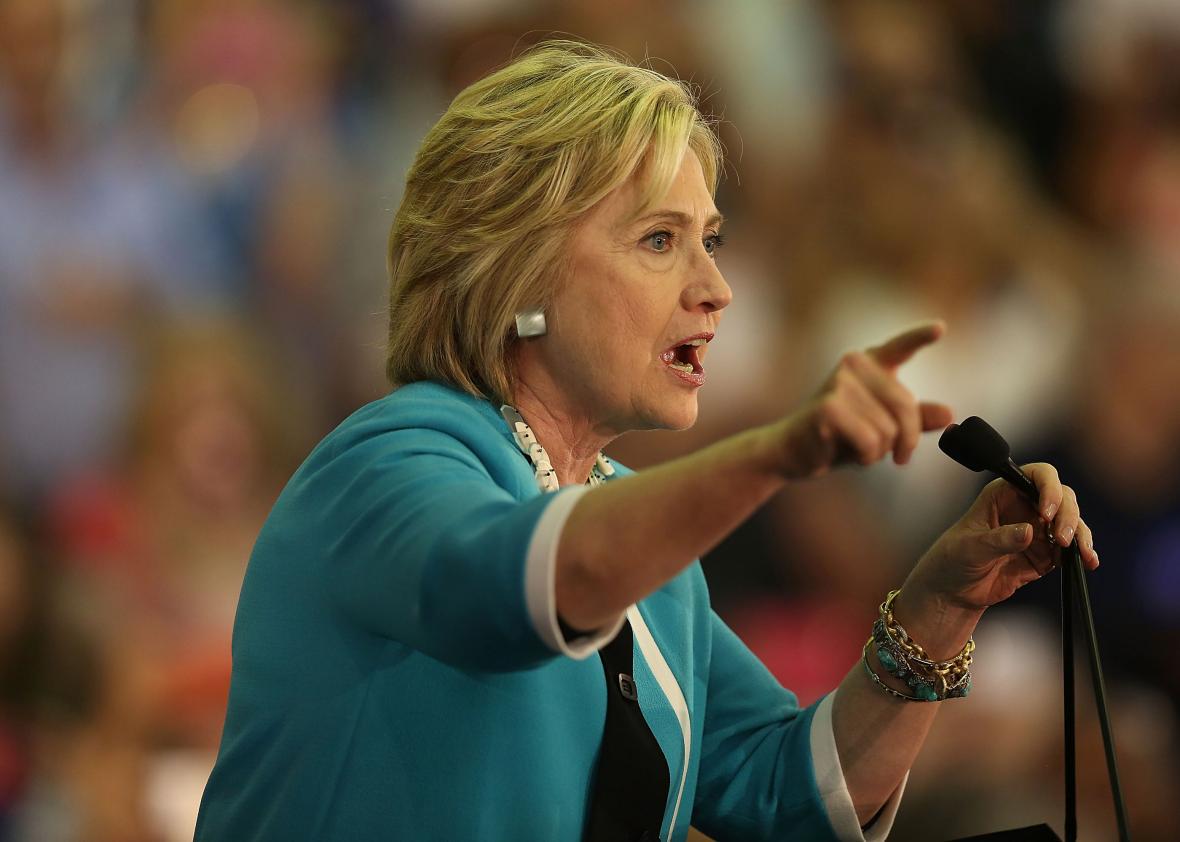Hillary Clinton on Monday renewed her call for aggressive new gun safety measures aimed at curbing domestic violence and mass shootings, an effort that the Democratic front-runner has been pushing with increasing force since this summer’s Charleston, South Carolina, massacre. This time, however, Hillary is promising something different: a way forward even if gun rights advocates continue to block such efforts in Congress.
“I will try every way I can to get those guns out of the hands of people who shouldn’t have them,” she told voters at a breakfast town hall in New Hampshire on Monday. “We need to prevent these kinds of terrible crimes that are happening.”
Clinton had previously voiced her support for reinstating the lapsed assault weapons ban and generally pushing for more universal background checks. Her new plan, though, centers on four key proposals:
- closing the so-called gun show loophole, under which private sellers at gun shows and on the Internet aren’t required to perform background checks;
- closing the so-called Charleston loophole, under which an individual with a felony record who would otherwise be barred from getting a gun can buy one if his background check is not completed within three days;
- repealing the gun industry’s exemption from lawsuits against manufacturers, which they were granted under a 2005 law called the Protection of Lawful Commerce in Arms Act;
- prohibiting domestic abusers from buying and possessing firearms.
All four are at or near the top of the gun control crowd’s wish list. And all four would stand little chance of passing Congress given the current status quo in Washington, where the gun lobby has had little trouble derailing any efforts that hurt its bottom lines. What makes Clinton’s plan particularly noteworthy, though, is her suggestion that she’d be able to go it alone on at least one of the proposals if elected president: the gun show loophole.
And just how would she do that? According to her campaign, even if Congress were unwilling to act, Clinton would be able to use her executive authority to tweak the existing rules to reclassify anyone who sells a “significant number of guns” as someone “in the business of selling firearms”—a distinction that would make those high-volume private vendors who sell guns at gun shows and over the Internet subject to the same rules as larger, licensed brick-and-mortar retailers. Clinton doesn’t appear to have settled on an answer to the question of just how many guns constitute a “significant” number, but even if her chosen definition didn’t close the loophole completely, it would at least shrink it.
Such an effort could face legal challenges in the courts and, at the very least, a guaranteed NRA-led political freakout in Washington. And, even if the effort survived both, it wouldn’t come close to ending gun violence in the United States. But for gun safety advocates and like-minded voters who are desperate for action on a problem that can feel politically impossible, Clinton’s outside-the-box plan will be a welcome start.
